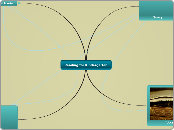Reading for Kindergarten
Fluency
Actiivities

Vocabulary
Definition of READING1: the act of reading 2a : material read or for reading b : extent of material read 3a : a particular version b : data indicated by an instrument 4a : a particular interpretation of something (as a law) b : a particular performance of something (as a musical work) 5: an indication of a certain state of affairs <a study to get some reading of shoppers' preferences> Examples of READINGThe family attended the reading of her will.The speech ended with a reading from his latest novel.After several readings, I finally understood the meaning of the poem.He needs help in reading.The teacher gave us a list of books for further reading on the subject.He has done a lot of reading on this subject.The reading for today is about human cloning.Moby-Dick is required reading for any scholar of 19th-century American literature.The pastor selected a reading for tonight's service.First Known Use of READINGbefore 12th century
High Frequency Words
Comprehension
Visualization
Question & Answer
Sequencing
Performing Arts
Inference
Phonics
Lesson Plan
Lesson Plan Topic: Reading intervention: Phonological Awareness: Phoneme IsolatingGrade Level: KindergartenTime needed to complete lesson (approx.): 30 minutesLesson objective(s): The student will isolate initial, final, and medial phonemes in words.Materials: Double-picture cards Student sheet Scissors glueProcedure:1. Student sorts pictures according to initial, medial, and final sounds.2. Student receives a set of double-picture cards and a student sheet. 3. The student cuts out a double-picture card, names both pictures, and determines if the two pictures share the same initial, medial, or final sound.4. Student glues the card under the correct heading.5. Student continues until all double-picture cards are glued on student sheet.6. Student can draw their own picture cards to add to the chart.7. I will develop some very difficult ones in case it becomes too easy after awhile.8. Teacher evaluation.9. If time permits, I will read from one of my big books to her.How will you assess student learning?The student and I will have a discussion about initial, medial, and final sounds in words. We will go through the student sheet one column at a time to check over the answers she gave. I will praise her for correct answers and question her on incorrect answers to find out her reasoning. I will then write everything we did down in her reading folder and take notes on what she did well and poorly. I will write what I think we need to work on for next time and do some research on alternate activities to help her with reading.
